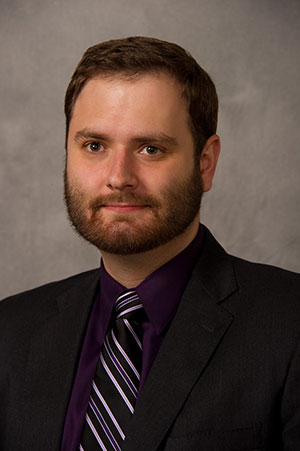
Adam Ployd (2013-14 Postdoctoral Fellow) is Assistant Professor of Church History and Historical Theology at Eden Theological Seminary and author of Augustine, the Trinity, and the Church: A Reading of the Anti-Donatist Sermons. LI asked Adam to share his perspective on teaching in the context of Ferguson.
On August 9, 2014, Michael Brown, an African-American teenager, was shot and killed by a white police officer in Ferguson, an inner-ring St. Louis (MO) suburb only ten miles north of Eden Theological Seminary where I teach Church History and Historical Theology. Usually, the hardest part of teaching history is making it relevant for students. But that semester, as I guided a group of passionate seminarians through the Reformation and the rise of Modern Christianity, every text seemed to speak immediately to our context, challenging us to responsible, faithful action.
Before the death of Michael Brown, I had already decided to revise my church history course. First, I would focus on the theme of “authority” in all its different manifestations and contestations from Martin Luther to the Enlightenment to Pentecostalism. This would provide a foothold for students trying to keep track of over 500 years of theology. Second, I would begin the class not with Martin Luther but with Martin Luther King, Jr., specifically his “Letter from a Birmingham Jail.” Eden is a progressive UCC seminary, and this text would help students connect right away to material that can otherwise seem esoteric.
When we gathered in September, however, everything had changed. Many students, faculty, and staff at Eden had already been engaged in weeks of protest, advocacy, and ministry in and around Ferguson. Many Eden community members carried signs and shouted for the end of prejudicial policing practices; others felt conflicted, uncomfortable condemning the brave men and women who serve our cities. As one group of students grew tired of talking about race, others arrived late to class, having spent the night tending to wounds from the teargas and rubber bullets that were deployed outside the doors of their churches.
In this context, we gathered to do the work of scholars. We moved from reading MLK’s prophetic response to white moderates in 1960s Alabama to the conflict over religious and political authority between Pope Boniface VIII and King Philip IV of France in the early 1300s. Normally students are chagrined that a Pope would claim wholesale authority over both the church and the civil government. But in the context of the Michael Brown shooting by our own civil authorities and the powerful response by the local clergy community, the conversation about 14th-century church politics suddenly seemed relevant in a difficult and challenging way.
Throughout the semester, I was able to encourage these students and pastors to examine what it means for a church to live and act in a context where its religious authority may necessarily come into conflict with civil authority. How do we draw the line between legitimate advocacy and theological imposition? When should the church work to change the law of the land, and when should the church act as a private community within a larger pluralistic society? I have asked these questions of students before, but never has the discussion been so vibrant or the lived experience of conflict and protest so viscerally present.